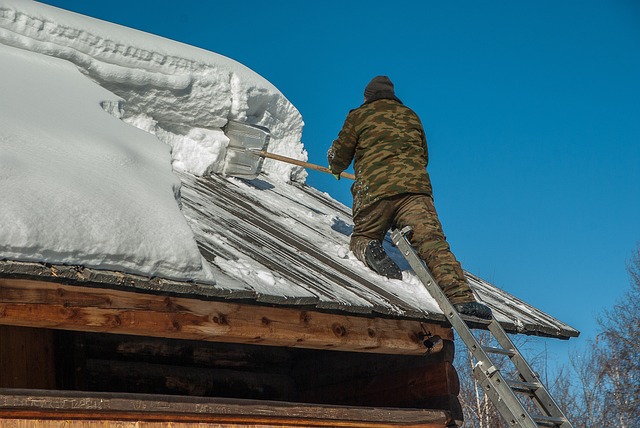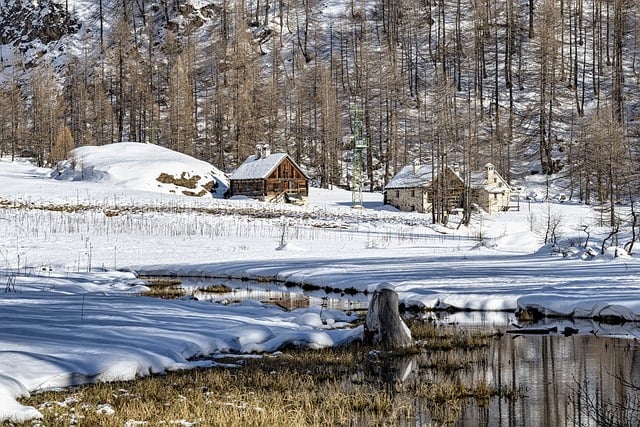This comprehensive guide outlines the essential elements for a reliable and effective commercial snow removal service contract. Key components include a clear definition of services such as plowing, shoveling, salting, and anti-icing, with specifics on the frequency of these services, geographic areas to be serviced, and weather conditions triggering the removal process. The agreement must detail the roles and responsibilities of both parties, particularly the client's obligations for property access and maintenance, as well as address liability and insurance matters to ensure safety and property protection. Transparent rate structures, precise payment schedules, and clear penalties or service guarantees are crucial for maintaining trust and avoiding disputes. Additionally, the contract should comply with all relevant legal frameworks, including necessary licenses, insurance coverage, and adherence to local regulations. By incorporating these elements into a commercial snow removal service contract, it ensures effective operations, client satisfaction, and legal compliance throughout the winter season. This approach not only streamlines the process but also fosters lasting relationships between clients and commercial snow removal companies.
Navigating winter’s wrath requires strategic planning and robust agreements. This article delves into crafting a resilient commercial snow removal contract, ensuring clarity, compliance, and financial protection for your business. From outlining the essentials to articulating service scopes, we’ll guide you through weathering the storm with contracts that stand up to snowfall. Key sections on defining service parameters, setting clear expectations regarding weather conditions, and navigating financial clauses, including pricing and liability, complete this primer for safeguarding your commercial snow removal service or company against the unpredictable nature of winter maintenance.
- Understanding the Essentials of a Commercial Snow Removal Contract
- Defining Scope of Services in Your Commercial Snow Plowing Agreement
- Weather and Service Conditions: Setting Clear Expectations in Your Contract
- Financial Clauses: Pricing, Payments, and Liability in Commercial Snow Removal Contracts
- Legal Considerations and Compliance for a Commercial Snow Removal Service
Understanding the Essentials of a Commercial Snow Removal Contract

When engaging in a commercial snow removal contract, it’s crucial to establish clear terms that delineate the responsibilities and expectations between the service provider and the client. A well-crafted agreement for a commercial snow removal service should outline the scope of services, including the frequency of snow plowing, the types of areas to be cleared, and the timelines for action post-snowfall. The contract must specify the geographic boundaries within which the snow will be removed, the equipment and personnel to be used, and the protocols for emergency situations. Additionally, the agreement should detail the client’s obligations, such as providing access to the property and maintaining necessary infrastructure like irrigation systems or lighting. To safeguard both parties, the contract should also address liability issues, particularly concerning safety and property damage, and stipulate any insurance requirements. Furthermore, the commercial snow removal company must be clear about their rates, payment schedules, and any penalties for missed service windows or cancellations to ensure a transparent and mutually beneficial arrangement. Including these details in the contract helps prevent misunderstandings and ensures that the commercial snow plowing operations are carried out efficiently and effectively, maintaining the safety and accessibility of the client’s property throughout the winter months.
Defining Scope of Services in Your Commercial Snow Plowing Agreement

When crafting a commercial snow removal contract, clearly defining the scope of services is paramount to ensure both parties have a clear understanding of what is included in the agreement. A well-defined scope within a commercial snow removal service contract outlines the specific tasks and responsibilities that the commercial snow plowing company will undertake, such as plowing, shoveling, salting, and removing snow from designated areas. This includes specifying the types of surfaces to be cleared (e.g., parking lots, walkways, driveways), the frequency of service (e.g., after every snowfall exceeding two inches), and any additional services like de-icing or anti-icing treatments. Additionally, it’s crucial to stipulate any exclusions, such as sidewalks adjacent to private property where access is restricted. By detailing these aspects in the contract, commercial snow removal companies can set clear expectations, mitigate misunderstandings, and streamline operations during the winter months, thereby providing reliable and efficient services to their clients. Property owners, on the other hand, can make informed decisions based on their specific needs and the capabilities of the commercial snow plowing service provider. This clarity helps in fostering a mutually beneficial relationship that endures beyond a single season.
Weather and Service Conditions: Setting Clear Expectations in Your Contract

When engaging in a commercial snow removal service contract, it’s imperative to establish precise weather thresholds that trigger the service. A well-crafted contract should outline the specific conditions under which the commercial snow removal company will activate its plowing operations. This includes defining what constitutes an official ‘storm’ or ‘significant snow event.’ For instance, a contract might specify the accumulation threshold at which point the snow removal services are to be initiated, such as two inches of snow within a given timeframe. Additionally, the contract should detail the response times and resources allocated for various levels of snowfall. This ensures that both parties have a clear understanding of service expectations, reducing disputes over service provision during adverse weather conditions. Furthermore, the agreement should cover the duration of the snow event that necessitates service—be it until the snow has been cleared to the client’s satisfaction or after a specified number of hours post-ceasing of snowfall. By setting these clear expectations in the contract, both the commercial snow removal company and the client can operate with transparency and mutual understanding, leading to more efficient and reliable service during the winter months.
Financial Clauses: Pricing, Payments, and Liability in Commercial Snow Removal Contracts

When drafting a commercial snow removal contract, financial clauses are pivotal to outline the terms of pricing, payment schedules, and liability clearly. The commercial snow removal service should specify the cost structure, detailing how prices are determined based on factors such as the size of the property, the volume of snow expected, and the frequency of services required. A commercial snow removal company must present a transparent pricing model that can include seasonal rates, per-event charges, or tiered pricing based on the level of service. It’s crucial to include provisions for regular payments, often tied to specific events like each snowfall or on a monthly basis, to ensure timely compensation for the work performed. Additionally, the contract should articulate the terms under which the commercial snow plowing will occur, including any additional charges for extra services or off-hour operations. Clear financial clauses not only foster trust between clients and service providers but also safeguard against potential disputes by setting clear expectations and responsibilities related to payment and service delivery.
Furthermore, liability protection within the financial clauses of a commercial snow removal contract is essential. The agreement should define the scope of work and outline the responsibilities of the commercial snow plowing company. It must also stipulate the limitations of liability, addressing potential damages or injuries that may arise from services provided under normal circumstances. This includes clarifying the steps the company will take to mitigate risks associated with snow removal operations. Additionally, the contract should include indemnification clauses to protect the service provider from claims related to the snow removal process, ensuring that both parties understand their legal obligations and the extent of their liabilities. These financial and liability provisions are critical for the commercial snow removal company to operate with confidence and security, knowing that they are shielded against unforeseen events while providing top-tier services.
Legal Considerations and Compliance for a Commercial Snow Removal Service

When establishing a commercial snow removal service, it’s imperative to address legal considerations and ensure compliance with local, state, and federal regulations. A commercial snow removal company must obtain the necessary licenses and insurance coverage to operate legally within its jurisdiction. This includes liability insurance to protect against property damage or injuries that may occur during snow removal operations. Additionally, the company should be aware of and adhere to zoning laws and right-of-way regulations that dictate where and how snow can be piled or removed from public spaces.
The service agreement must clearly outline the scope of services provided by the commercial snow plowing operation. It should detail the responsibilities of both the service provider and the client, including specific removal timelines after snowfall events, the extent of the areas to be cleared, as well as any special conditions such as handling of ice accumulation or steep slope challenges. The contract should also include stipulations for weather thresholds that trigger the service, ensuring that the company responds appropriately to forecasts and emergency declarations. Moreover, it’s crucial to establish a protocol for communication between the service provider and client, especially regarding scheduling and emergencies. This helps in maintaining a high standard of service and minimizing misunderstandings or disputes. By addressing these legal and compliance aspects, a commercial snow removal company can operate with confidence and provide reliability and security to its clients throughout the winter season.




